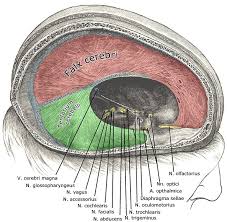Craniosacral Therapy for Concussion: A Gentle Approach to Long-Term Healing
Craniosacral Therapy for Concussion: A Gentle Approach to Long-Term Healing
As someone who has worked with professional athletes, including teams like the Sydney Roosters, I’ve seen firsthand how common head injuries are in high-contact sports like rugby. While these athletes are strong and resilient, repeated concussions and head trauma can have long-term consequences that aren’t always visible immediately.
Many people don’t realise that even one untreated concussion can create a ripple effect that impacts their mental, emotional, and physical health years down the line. Symptoms might not show up right away, but over time, clients often report difficulties with memory, emotional regulation, sleep disturbances, chronic migraines, and even depression.
Why Concussion Recovery Is More Complex Than You Think
What makes concussions so complex is the internal structure of our skull and brain. Our cranium isn’t one solid bone—it’s made up of multiple bones connected by sutures. These bones move subtly and are held in place by membranes like the falx cerebri and tentorium cerebelli. These membranes divide the brain and have a natural tension that helps stabilise it.

Cerebrospinal fluid flows between the brain and these membranes, acting as a cushion or shock absorber. When the head is subjected to force—like during a tackle or fall—the brain moves within the skull. That fluid sloshes around, and the internal membranes become strained.
A good analogy is a water balloon: when pressure is applied, the water inside moves, and the balloon stretches and tenses. In the human body, if the force is too great, the body may store the trauma energy in the membranes to protect the brain, but this can cause long-term dysfunction if not addressed.
How Craniosacral Therapy Helps Concussion Recovery
Craniosacral therapy for concussion works by gently releasing the stored tension and trauma energy held in the membranes and bones of the skull. This gentle, non-invasive hands-on therapy supports the body’s natural healing rhythm and helps restore balance and proper function.
In my experience, clients with both recent and older concussions often feel significant improvements in symptoms over several sessions. Relief from headaches, better emotional balance, clearer thinking, and improved sleep are common outcomes.
Don’t Wait—Support Your Brain’s Recovery
Whether you’ve experienced a recent concussion or are still dealing with long-term symptoms from a past head injury, craniosacral therapy offers a gentle yet effective path toward recovery.
If you’re ready to explore how this therapy can support your brain and nervous system, reach out to learn more.